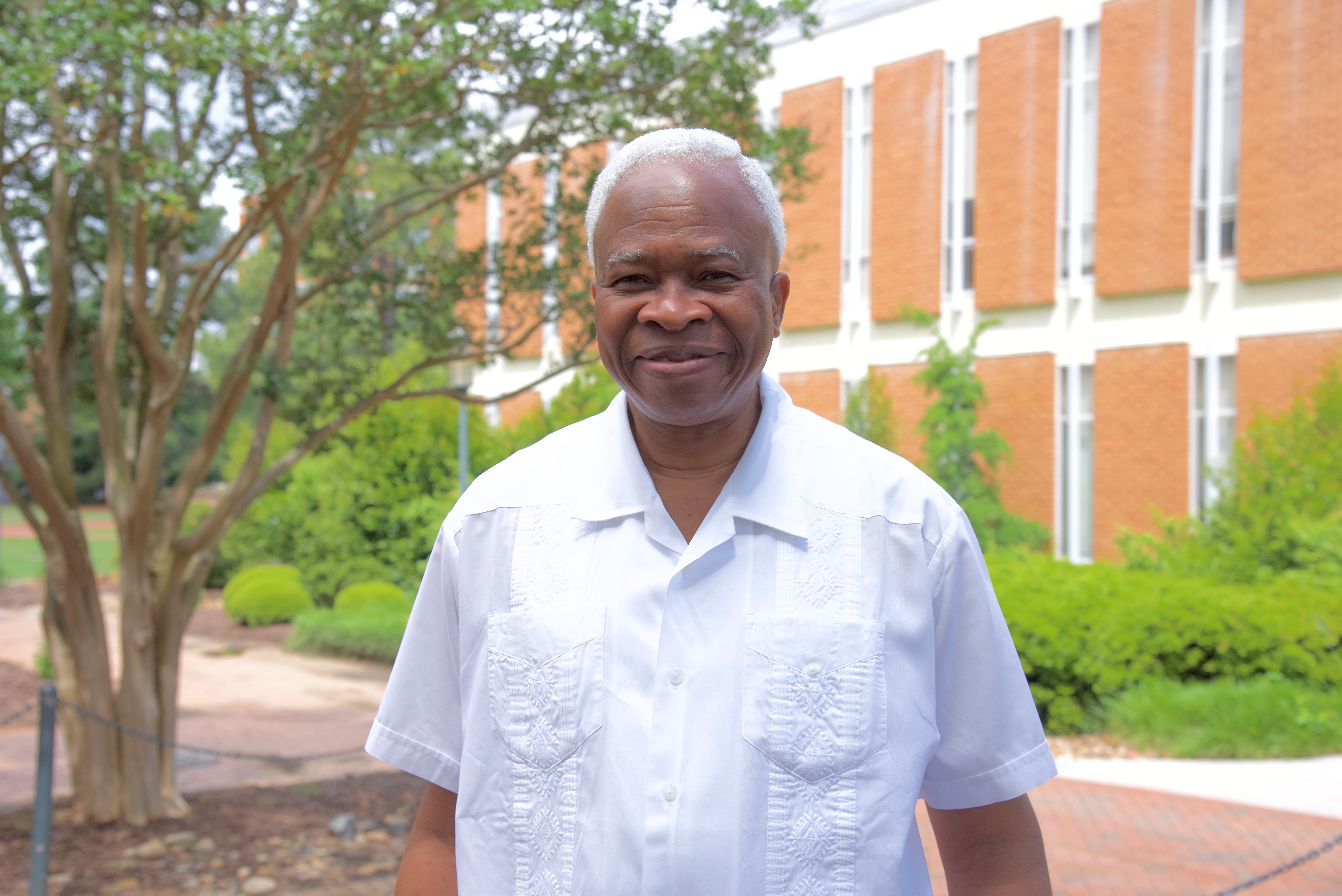With his Carnegie African Diaspora Fellowship, Africana Studies faculty member Honoré Missihoun will research and teach texts from Francophone countries in Africa, as he explores how the exploitation of women, land and natural resources relates to patriarchal and male-dominated societies.
“We are witnessing the degradation of our environment, and now it has become a very important issue in academia,” says Missihoun, a native of Côte d’Ivoire (Ivory Coast). “Literature and texts are focusing on the aspect of human activities and how we handle environmental issues. Women are the beginning of civilization, but are used as tools at the hands of men to perpetuate masculine prosperity and posterity. The environment is a living entity, but the way we are polluting and exploiting it is the same way the patriarchal system through endrocentric ideals has exploited women.”
With his fellowship, Missihoun will conduct research at the University of Jos, Nigeria from mid-May to mid-August. He will focus on the areas of eco-feminism and eco-criticism in the environmental literature of Francophone Africa and the African Diaspora, working with host faculty member Nora Daduut of the Department of Languages and Literary Studies, University of Jos.
As the foundation of his research, eco-feminism explores the connection between ecological or environmental concerns and those of the feminist movement, Missihoun says. Nigeria is an important setting for his research, as the largest crude oil producer in West Africa, with an economy dependent on the exportation of oil. The exportation of crude oil from Nigeria is an example of environmental exploitation, Missihoun says.
“The government exploits this resource by partnering with multinational oil companies without allocating dividends to native Nigerians,” he says. “This is particularly relevant with the oil-rich land native people of the Urhobo ethnic group of the Niger Delta of Nigeria.”
As a scholar in the interdisciplinary field of Africana Studies, Missihoun considers the physical, civic and artistic impact of his research.
“When natives claim rights to their land or oppose the exploitation of natural resources, they are repressed by the federal government and these multinational companies,” he says his research suggests. “This implies eco-political, environmental, economic and demographic issues.”
While at the University of Jos, Nigeria, Missihoun will teach and mentor students studying Francophone cultures and environmental literature.
Carnegie African Diaspora Fellowships are awarded to African-born scholars who are currently living in the United States or Canada and working at colleges/universities. Applicants submit project proposals detailing the resources of the host institution and the potential impact of the problem to be addressed.
Institutions in Ghana, Kenya, Nigeria, South Africa, Tanzania and Uganda host fellows to work on projects involving research collaboration, graduate student teaching/mentoring and curriculum co-development. The Institute of International of Education, in collaboration with the U.S. International University-Africa, offers fellowships. The program is funded by a grant from Carnegie Corporation of New York.
Missihoun’s award is the third Carnegie African Diaspora Fellowship received by the Africana Studies faculty since 2014. Missihoun, a lecturer in the Department of Africana Studies, joined UNC Charlotte in 2003. His research interests include environmental literature; ecocriticism and ecofeminism; environmental justice; black Atlantic and black cosmopolitan literature; race, ethnicity, gender and class the United States; and liberal studies. He completed a Master of Arts in Teaching from Kent State University. In 2006, he earned a Ph.D. in romance languages and comparative literature from UNC-Chapel Hill. Missihoun has studied internationally at the Pontifical University of Salamanca, Spain, and the University of Coimbra, Portugal, where he received a master’s degree in teaching linguistics.
Words: Leanna Pough | Image: Lynn Roberson








